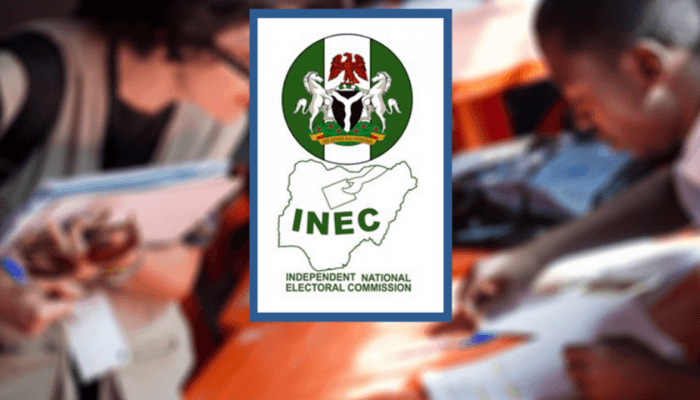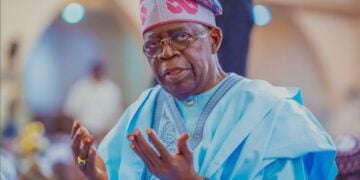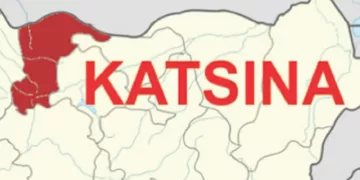The recent disclosure that over 100 applications for new political party registrations are currently before the Independent National Electoral Commission (INEC) is as intriguing as it is troubling.
While the constitutional and legal provisions empowering Nigerians to form political associations remain sacrosanct, the motivations, timing, and potential consequences of this wave of applications demand sober reflection.
Section 222 of the 1999 Constitution (as amended), alongside relevant provisions of the 2022 Electoral Act, clearly empowers the Commission to register political parties, provided they meet laid down criteria. These include demonstrating national spread, internal democracy, structural functionality, and compliance with inclusiveness. The verification process for each applicant is thus a crucial sieve – not just a bureaucratic procedure, but a necessary safeguard for democratic integrity.
The surge in new party applications, though lawful, is not without precedent. Following the return to democratic rule in 1999 with just three major parties – Peoples Democratic Party (PDP), All Peoples Party (APP) and Alliance for Democracy (AD) – Nigeria witnessed an explosion in party registrations.
What followed was a proliferation of political platforms, many of which functioned more as election-time accessories than ideologically grounded entities. Most were formed for transactional purposes – to negotiate appointments, siphon subventions (now abolished), or serve as backup vehicles for power-hungry elite.
That past experience must guide our present decisions. While we recognise the constitutional right of citizens to freely associate, including forming political parties, the time has come to critically interrogate the intent behind these party registrations. The timing – barely two years before the next general elections – coincides with deepening crises in some of the major opposition parties, rising political disaffection, and increasing fears (real or perceived) of a slide towards a one-party state. It is no coincidence.
For many political actors, particularly those sidelined by internal party crises or those whose ambitions have been blocked by entrenched power structures, the idea of forming new parties has become a way to reset their political journey – often with themselves at the helm. But forming a political party must not be reduced to a vehicle for personal ambitions or elite preservation. It must be about service, nation-building, and offering credible alternatives to a disillusioned electorate.
Indeed, if our political history is any guide, more parties do not necessarily mean more democracy. In the absence of ideology, discipline, and public service ethos, parties – new or old – become indistinguishable.
Since 1999, Nigeria’s dominant parties have failed to define themselves ideologically. Unlike the First or Second Republics, where parties were known for their distinct positions on economic, social, and cultural issues, today’s parties are defined more by who controls them than by what they stand for.
The results have been catastrophic. Parties have become mere platforms for contesting elections, with little internal debate or accountability. Moneybags dictate candidate selection. Discipline is weak. Loyalty is transactional. National development is an afterthought.
This editorial is not to pour cold water on the aspirations of genuine patriots seeking to create new platforms to reimagine Nigeria’s democratic future. Far from it. We welcome well-meaning citizens who are disillusioned by the failures of the existing parties and who believe the system can only be fixed from outside. Their efforts deserve encouragement.
However, INEC must do its job thoroughly, dispassionately and transparently. It must ensure that only serious-minded political associations that meet the letter and spirit of the law are granted registration. The electoral body must resist any temptation to act as a gatekeeper for the ruling party or to frustrate viable alternatives. It must not be seen to play politics with its core constitutional mandate.
The allegations by some opposition leaders that INEC is deliberately sitting on party registration applications to favour the ruling party are grave. If true, such actions undermine the Commission’s credibility and erode public trust in the democratic process. The commission must make the process more transparent and communicate clearly where each application stands.
At the same time, we caution applicants and their sponsors not to politicise the process unnecessarily. Not every delay is a conspiracy. And not every rejection is an act of political sabotage. A multiparty system does not mean a party-for-every-man. Democracy thrives when political competition is based on ideas, not just platforms.
We also urge existing parties, especially the dominant ones, to undertake urgent internal reforms. The push for new parties is as much a symptom of internal dysfunction as it is a desire for choice. If political parties were run on clear principles, with robust internal democracy, accountability, and room for new voices, there would be less incentive to create new ones.
But let it be clear: more parties will not fix Nigeria. Better parties will.
INEC must rise to the occasion. It must ensure that the party registration process is not reduced to another avenue for political racketeering. It must set and enforce high standards – standards that prioritise national unity, democratic depth, and institutional viability.
In the end, if new parties must come, let them come not as clones of the old order, but as credible vehicles for reform. Let them bring ideas, not just ambition. Let them offer hope, not just slogans. Let them reflect the best aspirations of a people desperate for leadership, vision, and change.
Otherwise, we risk creating a bloated party register filled with logos but devoid of value, and in that case, more will certainly not be merrier.











